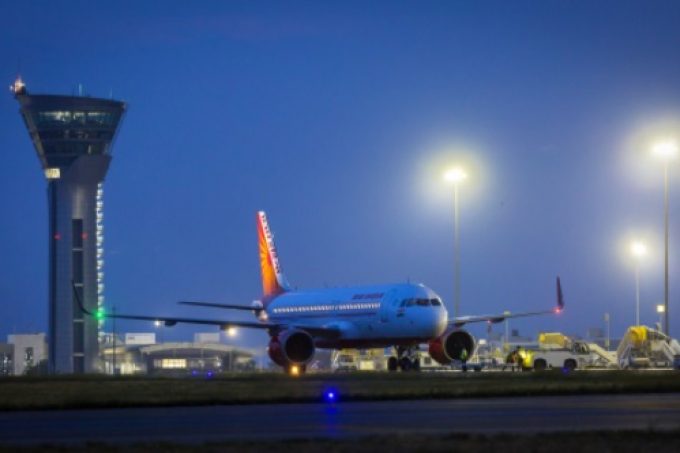Vizhinjam gets a head start in its quest to be a major transhipment hub
Vizhinjam Port, touted as India’s “hub counter” to Colombo in Sri Lanka, is gaining interest ...
TFII: SOLID AS USUALMAERSK: WEAKENINGF: FALLING OFF A CLIFFAAPL: 'BOTTLENECK IN MAINLAND CHINA'AAPL: CHINA TRENDSDHL: GROWTH CAPEXR: ANOTHER SOLID DELIVERYMFT: HERE COMES THE FALLDSV: LOOK AT SCHENKER PERFORMANCEUPS: A WAVE OF DOWNGRADES DSV: BARGAIN BINKNX: EARNINGS OUTODFL: RISING AND FALLING AND THEN RISING
TFII: SOLID AS USUALMAERSK: WEAKENINGF: FALLING OFF A CLIFFAAPL: 'BOTTLENECK IN MAINLAND CHINA'AAPL: CHINA TRENDSDHL: GROWTH CAPEXR: ANOTHER SOLID DELIVERYMFT: HERE COMES THE FALLDSV: LOOK AT SCHENKER PERFORMANCEUPS: A WAVE OF DOWNGRADES DSV: BARGAIN BINKNX: EARNINGS OUTODFL: RISING AND FALLING AND THEN RISING

Vaccine distribution in India is putting new pressure on air cargo rates and capacity.
With the largest vaccine manufacturing capacity in the world, the country is expected to play a major role in the production and distribution of Covid-19 vaccines, both at home and abroad.
So far, India has approved the UK-developed Oxford-AstraZeneca vaccine, while a second, from Indian firm Bharat Biotech, could also get the go-ahead.
Yesterday, pharma-hub Hyderabad Airport announced a partnership with Dubai to create a “global vaccine corridor”.
The corridor will see the two airports collaborate on “an integrated solution for temperature tracking and end-to-end visibility to streamline the journey of Covid-19 vaccines from manufacturers to end-customers”.
Pradeep Panicker, CEO of GMR Hyderabad International, said the airport was upgrading its handling capacity for vaccine shipments requiring cold to ultra-cold temperature ranges and would become “India’s largest air cargo centre both for international and domestic distribution of the vaccines”.
Cargo carrier SpiceXpress is getting in on the vaccine action at Hyderabad, too. Last month, the carrier signed an MOU with ground handler GMR Hyderabad Air Cargo, giving the airline priority space for its vaccine shipments. The carrier will provide first-mile pick-up and last-mile delivery across India and internationally, and keep dedicated freighters, including widebody aircraft, at Hyderabad.
SpiceXpress, the cargo arm of low-cost carrier SpiceJet, saw rapid growth last year after the global grounding of passenger fleets and a sudden switch in focus to airfreight. It has operated 11,800 cargo flights since March, carrying 93,500 tons.
However, India’s air cargo industry as a whole is estimated to have lost around 20% of volumes compared with 2019. And, with international passenger flights still restricted and vaccine rollout now taking priority, rates and capacity are under pressure again.
“Demand for domestic air cargo space is on the increase,” said Sundreysh Sarup, MD of Logistics Plus India. “With two key freighter operators, Blue Dart Aviation (DHL) and SpiceJet, both dedicating space to vaccine deliveries, its surely going to reach a situation of almost negligible available capacity for general air cargo movements, which will lead to increased freight rates.”
Furthermore, he told The Loadstar, India has limited belly capacity available, with narrow-bodied B737 and A320 aircraft flown by most domestic airlines.
“We also anticipate additional transit times, with cargo queuing up to be loaded on flights,” Mr Sarup added. “Keeping all this in mind, we’re already looking at alternate modes, such as express trucking and expedited rail freight.”
Indeed, alternative shipping options are also being eyed for India’s domestic vaccine distribution. For example, Kerala-based Sitics Logistics and TechEagle have teamed up to provide vaccine delivery to remote areas via drones.
Comment on this article